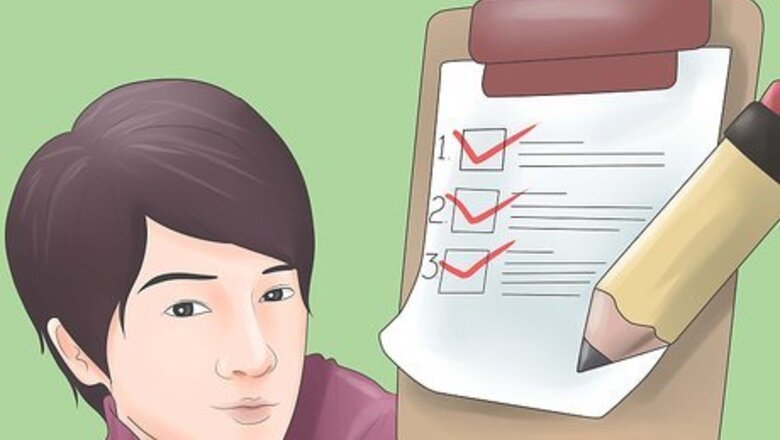
views
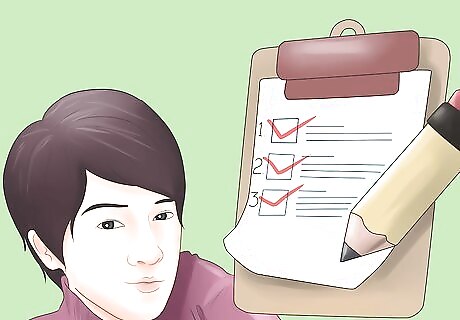
Make sure you meet the minimum requirements to pursue a CDL in New Jersey. You must be at least 18 years of age, a resident of New Jersey, a US citizen or lawful permanent resident, and have a Class D New Jersey driver's license (it cannot be a probationary license). You must be at least 21 years of age to drive outside of New Jersey (interstate commerce) and to obtain a Passenger or Hazardous Materials endorsement. You must have at least 20/40 vision in each eye, with or without corrective lenses. You must be able to distinguish red, amber, and green. You must be deemed physically capable by a physician. You cannot have had your current license revoked, denied, or suspended, or cannot have had a conviction for driving a commercial vehicle while impaired over the past 2 years. You must pay the required fees for a New Jersey CDL. You must be legally present in the United States. Undocumented migrants are not eligible for a CDL (they can only apply for an automobile or motorcycle license).
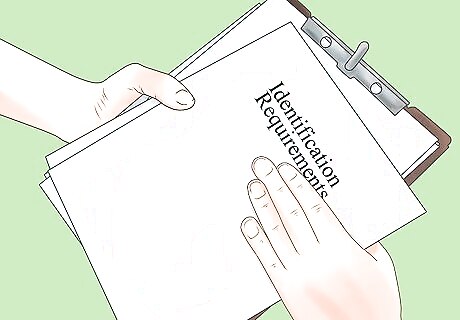
Produce the required identification materials. New Jersey's 6-Point ID Verification program ensures the identity of all CDL applicants. Applicants must show primary and secondary government-issued documents that, according to the New Jersey Motor Vehicle Commission, add up to 6 points. Primary documents: Civil birth certificates and U.S. passports are worth 4 points toward achieving the ID requirement. Civil marriage certificates are 3 points. Secondary documents: Most other documents are worth 1 point. They include a current New Jersey Class D driver's license, a bank statement or signed AM card, and a utility bill that is less than90 days old. Payment: After supplying the necessary documents to the MVC, you will be required to pay a non-refundable permit fee. The fee covers background checks, processing and testing.
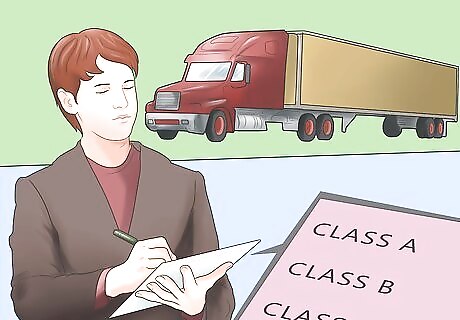
Determine the classification of the commercial vehicle you're planning to drive. Each class is for distinctly different types of vehicles. Depending on the weight of a single unit truck or combination of vehicles (truck and trailer), if the vehicle(s) being driven have Air Brakes, and the type of cargo being hauled will require different types of CDL. If you will transport 8 or more passengers for commercial purposes, you will need a passenger endorsement (you must be 21 or older for the passenger endorsement). If you want to drive a tractor-trailer or truck-trailer combination where the towed trailer is more than 10,000 pounds resulting in the total combined weight of the truck and trailer being more than 26,000 pounds, you will need Class A. If you want to drive a truck or bus of more than 26,000 pounds (may only tow a vehicle of more than 10,000 pounds as long as the total combined weight of the truck and trailer is not more than 26,000 pounds), you will need Class B. If you want to drive a smaller vehicle of up to 26,000 pounds with seating for more than 15 passengers or placarded for Hazardous Materials (may only tow a vehicle of more than 10,000 pounds as long as the total combined weight of the truck and trailer is not more than 26,000 pounds), you will need Class C.

Apply for the required endorsements for the type of commercial vehicle you plan to drive. Endorsements are special qualifications that carry single-letter designations. H: Hazardous materials. This requires specialized training and a placard stating that the vehicle is carrying dangerous cargo. L: For truck equipped with air brakes. N: Tank vehicles that transport large quantities of gas or liquids. P: Buses carrying passengers. This type requires a special road test and fingerprinting. S: For school bus drivers. T: Double- and triple-trailer vehicles.

Prepare for the CDL tests you will have to pass before getting your license. The New Jersey CMV requires applicants to pass knowledge (written) and road tests before being licensed. Knowledge test: These tests cover rules and regulations commercial-vehicle drivers must understand. Tests are administered at any Regional Service Center or Driver Testing Center, and often include a vision exam. No appointment is necessary. Brochures covering all test materials are available at the sites. A minimum score of 80 percent is required to pass the knowledge test. Road test: Applicants must pass the knowledge and vision tests before making an appointment to take a road test. Road tests cover vehicle-inspection basics, driving under normal traffic conditions, and performing maneuvers that are required with the type of vehicle you plan to drive. Applicants must supply their own vehicle for the road test.













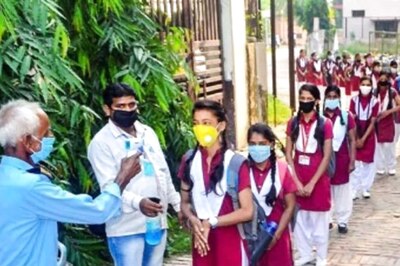




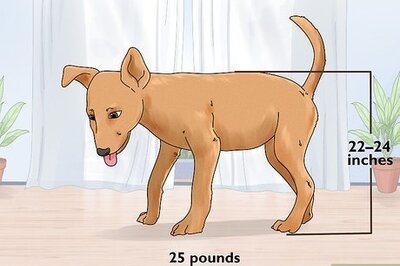
Comments
0 comment